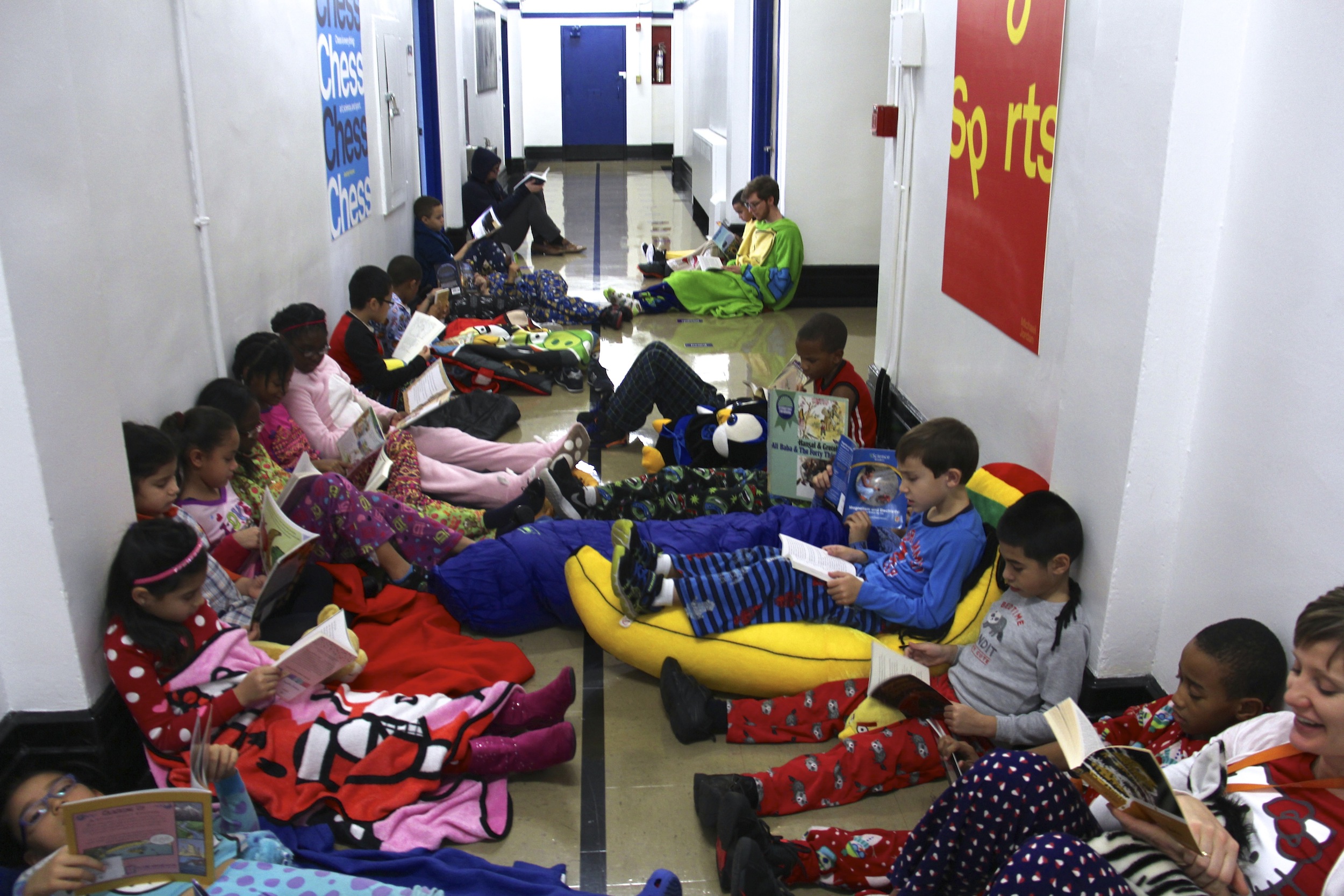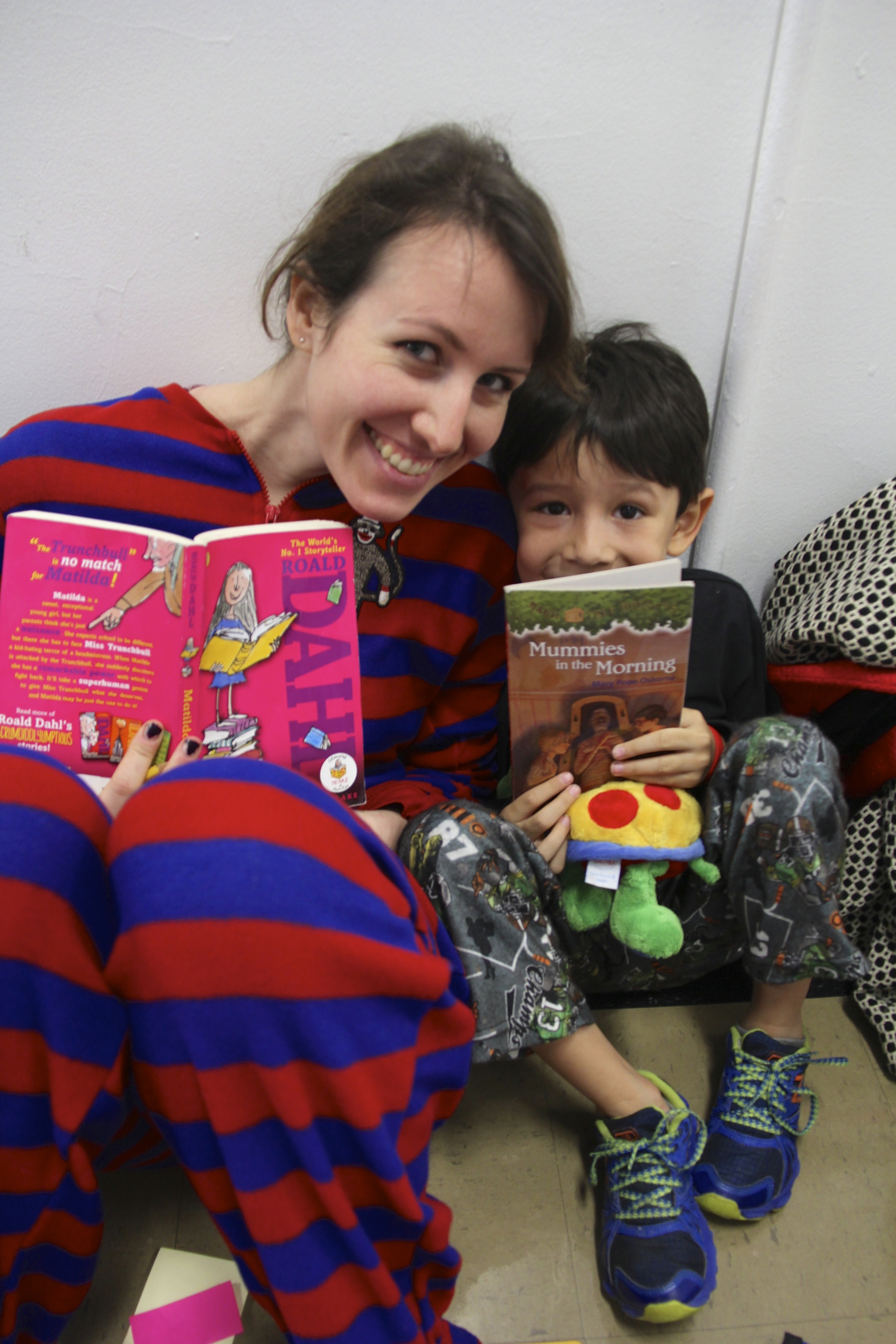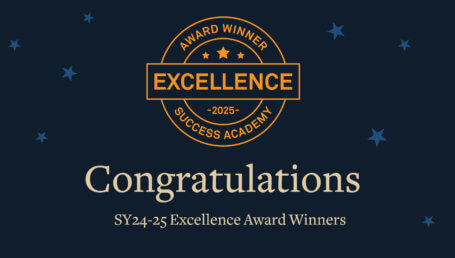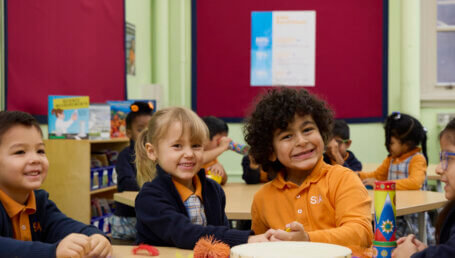
At the end of 2014, we focused on making reading resolutions to recommit ourselves to our love of reading for knowledge and for pleasure (not mutually exclusive)! However, all the way back in September, the entire Success Academy community resolved to guarantee our scholars certain rights as readers. We called this agreement the Success Academy Reader’s Bill of Rights, and we “ratified” it during a professional development day for school leadership. School leaders gathered together to discuss why each right was important, how it fit into our school design and our goals for our scholars, and the pitfalls of not ensuring these rights for kids. Leaders then shared the Bill of Rights with their teachers back at their schools.
So we thought it would be fun to share this document here, adding some explanatory notes for readers who may be unfamiliar with our trainings and classroom practices.
Success Academy, being a community comprised of scholars, families, teachers, leaders, and other individuals deeply committed to academic excellence, intellectual curiosity, passion for learning, and complete and total devotion to books and reading, guarantees to all scholars the following inalienable rights as readers.
Every Success Academy scholar has the right to…
- Meaningful and frequent Book Shopping and the services of a “Teacher as Librarian” who thoughtfully guides but does not force book selection. Every scholar “shops” for books at least once each week, selecting books from the classroom library to read independently at school and at home. Since each classroom has a library, our teachers are the “librarians” of their classrooms. As such, they get to know their scholars as readers, suggest books and provide opportunities for kids to share book recommendations with each other.
- Get lost in a book of his or her own choosing during Independent Reading time several times every week. Independent reading time is sacred! It’s tempting for time-crunched teachers to jettison independent reading time, so we make sure we value this time as highly as we value a math lesson. Not only is it a pleasure to sink into a book that they selected themselves, but independent reading helps kids develop stamina—reading for up to 50 minutes at a time by the end of 4th grade.
- Read books on a reasonable range of levels based on interest, motivation, background knowledge, subject matter of the book, and other considerations. We use guided reading levels, but we make sure levels are tools NOT straightjackets. Our teachers guide kids to books that are neither too easy nor too hard, but they don’t forbid kids from reading books just because they’re “not on that level.”
- Finish every book that is started as a class, such as a chapter book Read Aloud, as well as any Independent Reading book that he or she has not finished by the next week of Book Shopping. We want to make sure kids have the opportunity to finish books they’ve started—regardless of whether that particular unit is over or whether they are scheduled to move on to something else.
- NOT finish an Independent Reading book if a compelling reason is provided. This was the most controversial amendment among our principals! Are there valid reasons for abandoning a book in the middle? Should kids have to finish what they started? Check back next week for an exploration of this subject.
- Reread favorites while exploring new options. Some kids get stuck reading the same book over and over again, so they need a nudge into something more challenging or better suited to them. However, rereading can provide kids with the opportunity to notice details they missed, delve into different or more nuanced meanings, and revel in an author’s craft. Rereading can also provide comfort and build confidence—both so important to social emotional development.
- A well-stocked book baggie that is brimming with enough new books to last through any long weekend or school break, but that is not unreasonably over-stuffed. Before every long weekend or break, teachers make sure to prioritize book shopping so that kids have tons of great books they’re excited to read over vacation. Every scholar has a canvas book baggie that he or she takes to and from school and home every day—so kids are set up to read anytime, anywhere!
- Dislike a book, explain why, and choose a new one. Loving to read doesn’t mean loving every single book you read! We want kids to think critically and get to know themselves as readers. It’s okay for a scholar NOT to like a book, especially if he can explain why so his or her classmates or teachers can recommend another option.
- Laugh or cry or gasp out loud when spontaneously moved to do so. Independent reading doesn’t mean silent reading. Yes, we expect kids to focus, but it’s also important that they be given the space to react enthusiastically to what they’re reading.
- Talk about books with friends, teachers, and other grownups. Many readers do their best thinking about what they’ve read by discussing it with someone else. We provide our kids with the time to discuss books with reading partners, share their favorites with teachers, and book talk to the entire class. Scholars recommend books in person, in writing, through drawings and in videos!
- Listen to an engaging, expressive reader who brings to life any read aloud. There were originally ten amendments, in keeping with the whole Bill of Rights theme, but one of our colleagues noticed a critical omission! Reading aloud is such an important part of our literacy curriculum, and it’s vital that teachers read with expression. That means planning and practicing before reading a book to the whole class.
As with New Year’s resolutions, our Reader’s Bill of Rights provided us with an opportunity to refocus on our core beliefs around reading and refocus on the best practices that will ensure we foster a meaningful commitment to reading across our entire community.
Please let us know in the comments below if there are any amendments you think we missed!











